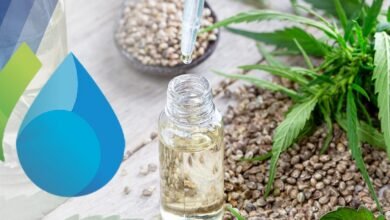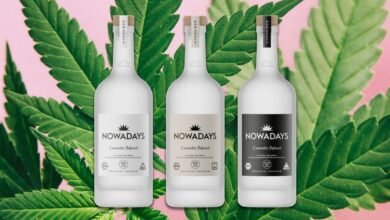Will CBD Oil Make You Fail a DOT Drug Test – A Comprehensive Guide

With the rising popularity of CBD oil due to its potential health benefits, many individuals, including transportation industry workers, question whether its use might lead to a failed Department of Transportation (DOT) drug test. This article delves into the complexities of CBD oil, its composition, testing procedures, and the implications for those subject to DOT regulations.
Understanding CBD Oil and Its Composition
CBD, short for Cannabidiol, is one of the many compounds found in the cannabis plant. Unlike THC (tetrahydrocannabinol), CBD is non-psychoactive, which means it doesn’t produce the “high” associated with cannabis. However, it’s crucial to note that many CBD products can contain trace amounts of THC.
| Comparison of THC and CBD | |||
|---|---|---|---|
| Component | Psychoactive | Legal Status in US | Common Uses |
| CBD | No | Federally legal under the 2018 Farm Bill when derived from hemp | Anxiety, pain relief, anti-inflammatory |
| THC | Yes | Varies by state, federally illegal | Pain relief, recreational use |
The Legal Framework of CBD Oil in the United States
The 2018 Farm Bill removed hemp-derived CBD (containing less than 0.3% THC) from the federal Controlled Substances Act, making it legal across the United States. Despite this, the presence of THC in CBD products can vary, and users must be cautious, especially when subjected to drug testing.
DOT Drug Testing Regulations
Under DOT regulations, a failed drug test occurs if THC is detected in an individual’s system above a specific threshold. The standard cutoff concentration for THC is generally 50 ng/ml for initial immunoassay and 15 ng/ml for confirmatory GC/MS testing, according to Federal Motor Carrier Safety Administration (FMCSA) guidelines.
How CBD Use Might Lead to a Failed Drug Test
Despite CBD’s non-intoxicating properties, several factors can lead to a positive result for THC in a drug test:
- Cross-contamination: Some CBD oils can be contaminated with THC due to processing practices.
- Full-spectrum CBD: Contains a broader range of cannabinoids, including THC.
- Individual metabolism: Differences in how individuals metabolize THC can affect test outcomes.
Statistical Insights into CBD Oil and Drug Testing
According to a 2021 study by Health Europa, approximately 10% of users who consumed CBD products reported positive tests for THC, challenging the belief that CBD use is safe under all drug testing protocols. This study underlines the need for rigorous third-party testing of CBD products to ensure THC levels remain below legal thresholds.
Key Considerations for CBD Users in DOT-Regulated Industries
Transport employees must weigh the risks and benefits of using CBD products, especially those containing full-spectrum extracts. To minimize the risk of failing a drug test, individuals should opt for CBD isolate products and ensure they are verified by third-party labs for THC content.
Opportunities and Challenges in CBD Product Manufacturing
Manufacturers have the opportunity to spearhead industry standards by introducing transparent labeling and rigorous testing protocols. However, they face challenges such as variability in state regulations and the need to ensure compliance with federal standards.
Call for Regulatory Clarity and Standardization
The CBD industry urgently requires more stringent regulations and standardization to prevent inadvertent THC consumption leading to career-impacting drug test failures. Advocacy for nationally consistent policies is critical to protect consumers and industry credibility.
Consumer Education on CBD Use and Drug Testing
Empowering consumers with information is vital. Understanding the different types of CBD (full-spectrum, broad-spectrum, and isolate) and their potential THC content can help users make informed decisions, particularly those navigating DOT-regulated careers.
The Path Forward for CBD and Drug Testing
As the CBD industry evolves, collaboration between lawmakers, industry leaders, and consumer protection agencies is crucial to align CBD product offerings with safe use in regulated environments like transportation. Given the rapid growth and interest in CBD oil, keeping public health and safety at the forefront of policy discussions remains imperative.
Key Takeaways
In summary, while the therapeutic benefits of CBD oil are increasingly recognized, the possibility of failing a DOT drug test due to THC contamination cannot be overlooked. Achieving harmony between consumer safety, regulatory frameworks, and robust industry practices is essential for CBD’s sustainable growth and acceptance.
FAQs
Does CBD Oil Show Up on a Drug Test?
No, CBD itself typically does not show up on drug tests as standard tests do not screen for this compound. However, trace amounts of THC in some CBD products can potentially trigger a positive result for THC. It is crucial for users, especially those in safety-sensitive positions, to understand the differences between various CBD products and verify the THC content before consumption.
What Types of CBD Products Are Safest for DOT-Regulated Workers?
For workers subject to DOT regulations, CBD isolate products are generally the safest option. Isolates contain only CBD without other cannabinoids, including THC. Broad-spectrum products, another choice, eliminate THC while retaining other beneficial cannabinoids. To ensure safety and compliance, workers should choose products accompanied by a Certificate of Analysis (COA) verifying their chemical composition and absence of THC.
How Can CBD Users Ensure They Won’t Fail a Drug Test?
CBD users can take several precautions to minimize the risk of a positive drug test for THC, such as using reputable products that are third-party tested for THC levels, choosing products with clear labeling, and avoiding full-spectrum CBD products. Knowing the source and purchasing from reputable brands with transparent practices further ensures that THC contamination risks are mitigated.
Are There Legal Protections for CBD Users Who Fail Drug Tests?
Currently, legal protections for CBD users who fail drug tests are minimal. Employment policies generally prioritize workplace safety, and DOT regulations are stringent concerning drug use. Workers should remain aware of their employer’s policies regarding CBD use and consult legal experts if facing employment consequences due to a drug test failure related to CBD use.
Can CBD Oil Affect Employment Opportunities?
Yes, using CBD oil can impact employment, particularly in industries that require regular drug testing, such as transportation or federal jobs. While CBD itself is not screened for, THC presence, even in trace amounts, can result in a positive test, leading to disciplinary actions and affecting hiring and employment status. Staying informed about the nuances of CBD products and maintaining transparency with employers can help mitigate potential workplace challenges.

